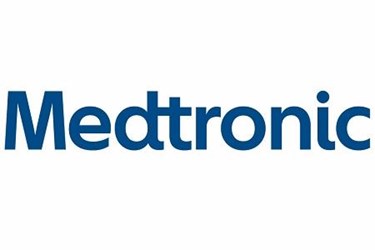Medtronic Execs Pin Growth Plans On Diabetes, Robotic Surgery

By Jof Enriquez,
Follow me on Twitter @jofenriq

After reporting a $1 million loss for the same period one year earlier, Medtronic defied analysts’ expectations to bounce back and earn $1.1 billion in the fourth quarter ended April 29, boosted by the acquisition of Covidien. Strong demand for cardiovascular and diabetes device sales paced all product segments during the period.
Worldwide revenue rose 4 percent to $7.5 billion during the fourth quarter, compared to $7.3 billion in the same period last year, according to a press release. The Cardiac and Vascular Group (CVG) unit, which sells pacemakers, defibrillators, heart valves, and stents, increased fourth quarter revenue by 5 percent to $2.73 billion. The Minimally Invasive Therapies Group (MITG), which includes the Covidien portfolio, grew 3 percent to $2.46 billion in the fourth quarter. The Restorative Therapies Group (RTG), which includes the spine, neuromodulation, surgical technologies, and neurovascular divisions, expanded by 1 percent and posted fourth quarter revenue of $1.87 billion.
Device sales increased due to greater healthcare demand, particularly in the United States, where more Americans gained insurance coverage under the Affordable Care Act. Increased demand for minimally invasive surgery was also a factor.
“Because minimally invasive procedures are easier, safer and less traumatic for patients, it will get more people off the fence about having surgery,” Medtronic CEO Omar Ishrak explained in an interview with Reuters.
The Diabetes Group sales increased 6 percent to $496 million, driven by continued strong sales in Europe and Asia Pacific of the MiniMed 640G insulin pump, brisk sales of the iPro continuous glucose monitor (CGM) in the U.S., and steady growth of the MiniMed Connect device. Medtronic executives foresee further uptick in global diabetes device sales in the high single-digit to low double-digit growth range, as the company introduces class-defining products and clinch exclusive insurer deals.
“Regarding our pipeline, we are on-track to submit the PMA for the MiniMed 670G with the Enlite 3 CGM sensors to the FDA before the end of June. Once launched, this would be the world’s first hybrid closed-loop system. Also this quarter, we were pleased to reach an agreement with United Healthcare to be their preferred insulin pump provider,” Ishrak told analysts in a webcast.
Medtronic executives reaffirmed their plan to expand into what they consider the untapped Type-2 diabetes patient population through personal glucose monitoring.
“The Type-2 population is 90% of all patients with diabetes, so it’s a huge market opportunity. And when you take a look at those 90% of the patients, what we have decided to focus on is really monitoring those 90%. We could have gone the rout of insulin delivery, because that’s also a core competency, but insulin and delivery within that Type-2 population only addresses about 10% of that 90%,” said Hooman Hakami, president of the Diabetes Group.
Medtronic last week announced a collaboration with Qualcomm to develop single-use continuous glucose monitoring (CGM) systems, and it previously unveiled a partnership with IBM Watson to imbue Medtronic’s standalone CGM products and insulin pumps with cognitive and predictive abilities. These agreements are part of Medtronic’s long-term strategy to offer comprehensive diabetes management for patients, rather than selling devices alone.
Hakami explains, “Our goal isn’t just to deliver a sensor to those patients or just the product, it’s really to deliver an integrated solution to those patients where we bring not just a technology, but capability through analytics and insight that can give those patients actionable information, so that they can better managed their disease.”
Besides diabetes, another area where Medtronic is pushing hard is robotic surgery. Last month, it inked a collaboration/investment agreement with Mazor Robotics, developer of the Renaissance surgical robotic guidance systems for minimally invasive spine surgery. The deal will allow Medtronic to layer in their surgical devices with Rennaisance as a complete package.
“We are excited about the partnerships in robotics with Mazor and then integrating these platforms as we move forward to provide to differentiate spine procedures both economically and surgeon experience. Low radiation, just an easier surgical procedure et cetera, we think is going to differentiate our spine business,” said Geoffrey Martha, president of the Restorative Therapies Group.
For incoming fiscal year 2017, Medtronic said it will exceed analysts’ expectations of 3 percent revenue growth, projecting growth to come between 5 to 6 percent instead, reports the Wall Street Journal.
“As we enter our new fiscal year, we look forward to delivering on our robust pipeline of products and services, expanding our global reach to serve more patients, and partnering with others around the world to develop new value-based business models,” said Ishrak. “We believe that Medtronic can play a meaningful leadership role with others in healthcare that can lead to better outcomes for patients, while improving overall healthcare system performance.”
